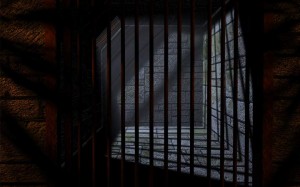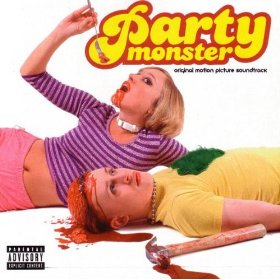By: Timofey Rejouain
 Under a Cruel Star tells the story of Heda Margolius Kovaly, a Czechoslovakian writer, narrated in the first person. In her memoir, Kovaly indicates in the very first sentence that there were three forces in her life that determined the person she would later become: Nazism, Stalinism, and “a shy little bird hidden in her rib cage an inch or two above her stomach.” The bird, like most other birds in literature, is the symbol of freedom. Interestingly enough, Kovaly does not indicate that freedom is an external entity, nor that it is inherent within man; but rather, that it’s an internal process that takes years to develop and even longer to set free. Why does she have this perspective? Well, she lived through the two darkest periods of mankind, the first and second forces that informed her life.
Under a Cruel Star tells the story of Heda Margolius Kovaly, a Czechoslovakian writer, narrated in the first person. In her memoir, Kovaly indicates in the very first sentence that there were three forces in her life that determined the person she would later become: Nazism, Stalinism, and “a shy little bird hidden in her rib cage an inch or two above her stomach.” The bird, like most other birds in literature, is the symbol of freedom. Interestingly enough, Kovaly does not indicate that freedom is an external entity, nor that it is inherent within man; but rather, that it’s an internal process that takes years to develop and even longer to set free. Why does she have this perspective? Well, she lived through the two darkest periods of mankind, the first and second forces that informed her life.
Born in 1919, at the age of twenty-two she was rounded up like the rest of the Czech Jewish population and sent to the Lodz Ghetto. Not soon after, she was sent to Auschwitz concentration camp. She was instantly separated from her family, her parents were gassed, and she was spared—which served to contribute to her continual survivor’s guilt for the rest of the book. In 1945 when the Soviets slowly encroached upon Auschwitz, the prisoners were ordered to evacuate (which insistently was an order from Himmler, not Hitler, since Hitler probably would have killed Himmler if he had found out) which provided Kovaly along with a few other prisoners, the perfect opportunity to escape. When they reached Prague, they noticed a dramatic shift in a war-torn populace still occupied by the Germans—though not for long. Everyone, her friends and family especially, were too afraid to help her. There were too many posters being hung up all across the town of people who had ‘betrayed’ National Socialism by helping out the Jews (and other enemies of the state) and been killed for their ‘crimes’.
She does, though, finally find the Resistance which helps her find a hiding place for the few months left in the war. When the war does finally end, she’s able to pick up the fragments of her former life. Since her entire family, cousins, parents, siblings, everyone, was killed in various concentration camps, she resolves to start her own family. She met Rudolf Margolius, a quaint and dedicated man, and they bonded over their experiences in the concentration camps—she in Auschwitz and him in Dachau. They seemed to finally be living a normal life; but then, the Communists came within months of National Socialism being decimated. This wasn’t just any form of Communism, but the worst form of the Red Beast: Stalinism.
Suffice it to say, Rudolf and Heda did not live happily ever after. Not that they didn’t deserve it after enduring the hell of their concentration camp experience; but it seemed that life still had a few more trials in store for them. Well, they have a child, and at first we’re given the impression that everything could be alright. Maybe Czech is too far away from Moscow? Maybe the Iron Curtain wasn’t as strong as its name pretended to be? But alas, Czech modeled itself after the Mother Russia. While the extent and weight of corruption wasn’t as entirely tangible as it was in the Soviet Union, there certainly was a sense that terror was on the horizon in Prague, Czech. She gets a job at a publishing company doing illustrations and Rudolf gets a rather important political position as the Deputy Minister of Foreign Trade under the Prime Minister Klement Gottwald.
Within a couple of years, in 1952 Rudolf is charged as a traitor of the Communist Party, found guilty (only because he was tortured for months on end until he confessed), and then executed with the 11 other men in the infamous Slanksy Trials. All the while we’re exposed to all the doubt, fear, and courage of Heda as she witnesses her husband, the love of her life, the man that she had more respect for than anyone in the entire world, be murdered for a crime he did not commit. And surly, it was all a political maneuver. For what reasons, we’re never given privy to—mainly because she was never given privy to. Probably political. It’s always political. There is some closure to the issue of his guilt when in 1953 Stalin died and, one-by-one, these men, and their families (since their families were severely persecuted by the public), were exonerated for their crimes. There a particularly vivid scene in the book when Kovaly gets sick, fatally ill, and has to see a doctor. When the doctor discovers her identity and association with Rudolf, she’s kicked out of the hospital even though the doctor states that she needs medical attention or she will die. Needless to say, the whole incident was blamed not on the government—even after these men were exonerated—but the result of the ‘cult of personality’ phenomenon.
The rest of the book goes through other such trials that she experienced, both with her son, Ivan, and going on without Rudolf. She remarries to a man named Pavel Kovaly and tells her son when he turns sixteen what really happened to his father (since she had pretty much been lying, or omitting the entirety, of what happened to his father). Then, the Soviet Union invades Czech after Prague Spring—the short period in 1968 when the country was liberated from the Soviets for the first time. Eventually, she fled to America when the Soviets came marching in with their big guns; but she still remained relatively loyal to the spirit of courage and conscionable action when for the betterment for the community and her fellow man.
It becomes apparent while reading her book that Kovaly had a tougher life than a majority of Holocaust survivors. Even that of Anne Frank (who unfortunately didn’t make it) because she didn’t just survive one totalitarian state and live to tell her tale, she survived two. It’s unfortunate that it isn’t Kovaly’s work that is taught in high schools and distributed more often, since not only is it better written than Frank’s memoir—which is saying something since Frank was such a terrific writer—but it encompasses human suffering to a greater extent and with a lot more enlightenments about how she survived and what caused her homeland to turn to Communism in the first place. Her work, a vivid portrayal of a Czechoslovakian caught under the tanks of two of the worst tyrannical systems, demonstrates man’s capacity for good and bravery. But for those of you who are still a little on the fence about going to the library and reading this amazing story, let me just say that it isn’t a difficult read. Kovaly’s a wonderful writer with vast fault of great descriptions and dialogue and it certainly doesn’t read like a non-fiction book—despite its very real, historical perspective.
Under a Cruel Star,


